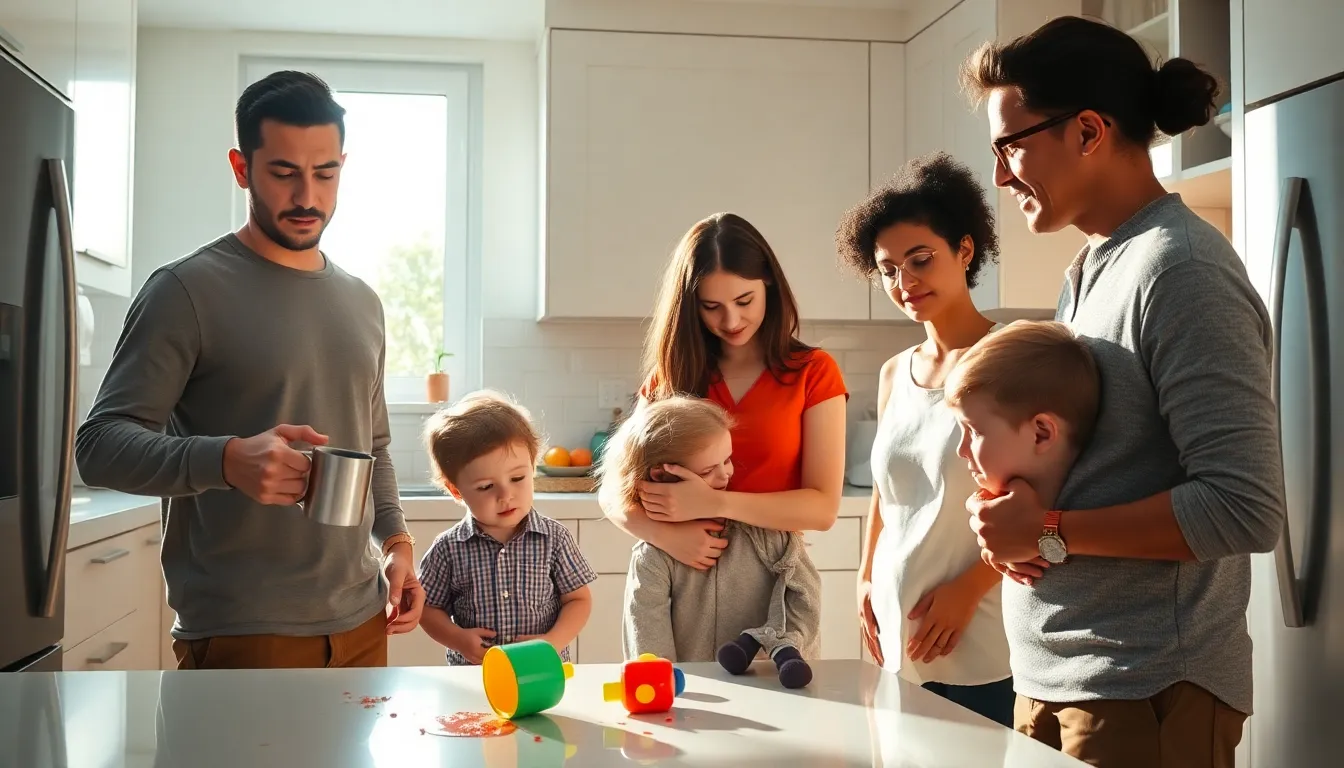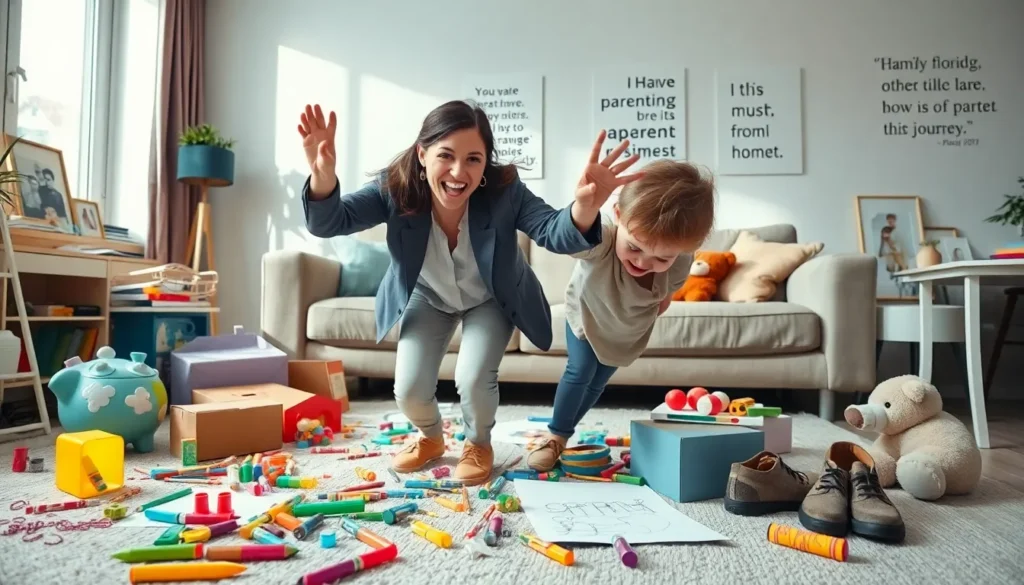Parenting can feel like a glorious, yet chaotic circus act. Imagine juggling flaming swords while riding a unicycle, that’s how it often feels when trying to keep kids happy and healthy. But fear not, everyone trips over their own shoes sometimes. In fact, those hilarious mishaps we lovingly call “parenting fails” can teach us invaluable lessons. So, grab some popcorn as we bravely dive headfirst into the delightful mess of parenting gone wrong.
Table of Contents
ToggleCommon Parenting Fails and Their Lessons

Underestimating Sleep Deprivation
Sleep deprivation isn’t just a tired parent’s excuse for a coffee addiction. It’s a sneaky thief that steals sanity and patience while making everything feel a hundred times worse. Many parents underestimate how a lack of sleep impacts their decisions and interactions with their kids. It’s easy to snap at a child’s innocent question when you’ve only seen two hours of sleep in the last week. Learning to prioritize rest and seeking help can make a world of difference.
Ignoring the Importance of Consistency
Inconsistency in parenting can confuse children faster than a magician’s disappearing act. When boundaries fluctuate like a seesaw, kids don’t know what to expect. A parent might say no today but change their tune tomorrow. This leaves children questioning the rules, which leads to emotional turmoil and behavioral issues. Establishing firm, consistent rules helps children feel secure and understood.
Overreacting to Minor Issues
It’s a well-documented fact that a Lego piece on the floor can escalate into a full-blown drama. Parents often find themselves overreacting to minor issues, which can teach children that they need to be in crisis mode to be heard. Reeling in the exaggerated reactions to everyday troubles fosters a calm environment where children learn to handle their own frustrations with composure.
Failing to Listen to Your Child
When parents are constantly busy, they can forget the importance of tuning in. Listening to children means more than just hearing their words, it’s about understanding their feelings, fears, and joys. By genuinely engaging in conversations, parents validate their child’s experiences, building stronger relationships and encouraging open dialogue.
The Pitfalls of Comparing Parenting Styles
Coping with School-Related Challenges
In the age of social media, the pressure to be the perfect parent can feel overwhelming. Many parents compare their decisions, such as school choices and extracurricular activities, with friends or online influencers. This pressure can lead to unnecessary stress and make parents question their instincts. Recognizing that every child is unique, with different strengths and weaknesses, is essential. Embracing individual parenting styles cultivates not only a well-adjusted child but also a more confident parent.
Navigating Social Media Influence
Scrolling through seemingly perfect parenting blogs or Instagram accounts can send anyone spiraling down a rabbit hole of self-doubt. Parents may find themselves chasing trends or fleeting ideals instead of focusing on what works best for their families. It’s crucial to remember that social media showcases polished moments, not the full story. Challenging these influences helps parents align their practices with their values.
Teaching Responsibility—The Right Way
Implementing Consequences Effectively
Teaching children responsibility is vital, yet it’s easy to slip into the trap of empty threats. Effective consequences should not feel like punishment: rather, they should serve as constructive opportunities for growth. For example, if a child forgets their lunch at home, allowing them to experience hunger at school can be a powerful lesson. Striking the right balance between consequences and compassion equips children with the tools they need to navigate the world.
Balancing Independence and Guidance
Independence is a rite of passage, yet parents often hover like a helicopter, scared of their children stumbling. Striking a balance between offering guidance and giving children the freedom to make choices is essential. This means stepping back during small failures to allow room for learning while always being available as a safety net when needed.
Embracing the Learning Process: Growth Mindset in Parenting
Sharing Personal Experiences
Parenting is less about being a perfect superhero and more about being real. Sharing personal experiences, including failures, teaches children resilience. It reassures them that making mistakes is a natural part of life. For instance, if a parent admits to their own blunders, like burning dinner or helping with a difficult assignments problem, children learn that it’s okay to stumble as long as they get back up.
Encouraging Open Communication
Creating an atmosphere of open communication allows children to express their thoughts and feelings without fear of judgment. Regular discussions foster trust and enable parents to better understand their child’s evolving needs. When children feel safe to share their concerns, it builds their confidence and strengthens familial bonds.




